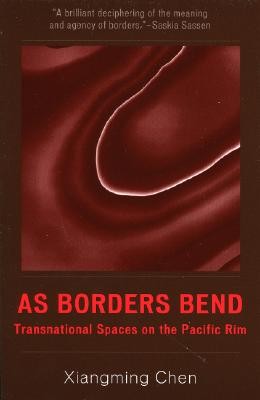
- We will send in 10–14 business days.
- Author: Xiangming Chen
- Publisher: Rowman & Littlefield Publishers
- ISBN-10: 0742500942
- ISBN-13: 9780742500945
- Format: 16.7 x 22.8 x 2 cm, softcover
- Language: English
- SAVE -10% with code: EXTRA
Reviews
Description
As do other mighty forces such as wars, nationalist aspirations, and the shifting courses of great rivers, globalization changes the world's borders by bending them out of shape and creating new transnational spaces. State political boundaries no longer draw the definitive line in people's lives they once did. Borders continue to contain self-described national populations and national activities, but the penetration of economic globalization via growing cross-border trade, investment, and resurgence of myriad regional ethnic groups is pushing and stretching the limits of borders into both interactive spaces and contested terrains. Indeed, new power centers with their own identities are springing out of once politically trivial and economically marginal landscapes. While the terrorist attacks of 2001 and the SARS outbreak of 2003 prompted states to tighten border controls, their efforts amount to only a temporary reversal of a powerful long-term trend toward more open borders and the interactive transnational spaces that openness fosters. This innovative book examines the complexities of de-bordering and re-bordering through a structured comparison of seven transborder subregions along the western Pacific Rim and an extended comparative analysis of the U.S.-Mexico border and several European border regions. Xiangming Chen offers a synthetic explanation for the complex and diverse processes and outcomes of economic growth, social transformation, infrastructure development, and urban landscapes in the new transnational spaces around the porous and mutated borders on the Pacific Rim and beyond.
EXTRA 10 % discount with code: EXTRA
The promotion ends in 16d.13:45:21
The discount code is valid when purchasing from 10 €. Discounts do not stack.
- Author: Xiangming Chen
- Publisher: Rowman & Littlefield Publishers
- ISBN-10: 0742500942
- ISBN-13: 9780742500945
- Format: 16.7 x 22.8 x 2 cm, softcover
- Language: English English
As do other mighty forces such as wars, nationalist aspirations, and the shifting courses of great rivers, globalization changes the world's borders by bending them out of shape and creating new transnational spaces. State political boundaries no longer draw the definitive line in people's lives they once did. Borders continue to contain self-described national populations and national activities, but the penetration of economic globalization via growing cross-border trade, investment, and resurgence of myriad regional ethnic groups is pushing and stretching the limits of borders into both interactive spaces and contested terrains. Indeed, new power centers with their own identities are springing out of once politically trivial and economically marginal landscapes. While the terrorist attacks of 2001 and the SARS outbreak of 2003 prompted states to tighten border controls, their efforts amount to only a temporary reversal of a powerful long-term trend toward more open borders and the interactive transnational spaces that openness fosters. This innovative book examines the complexities of de-bordering and re-bordering through a structured comparison of seven transborder subregions along the western Pacific Rim and an extended comparative analysis of the U.S.-Mexico border and several European border regions. Xiangming Chen offers a synthetic explanation for the complex and diverse processes and outcomes of economic growth, social transformation, infrastructure development, and urban landscapes in the new transnational spaces around the porous and mutated borders on the Pacific Rim and beyond.


Reviews